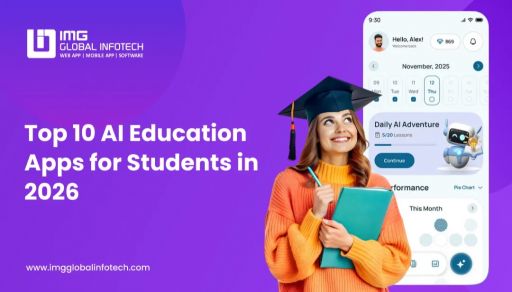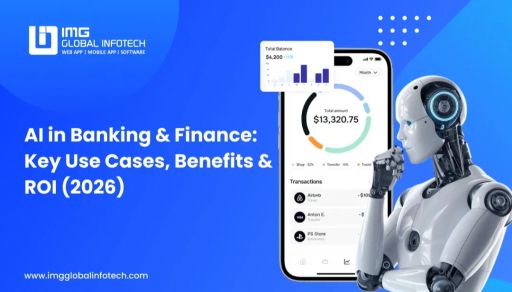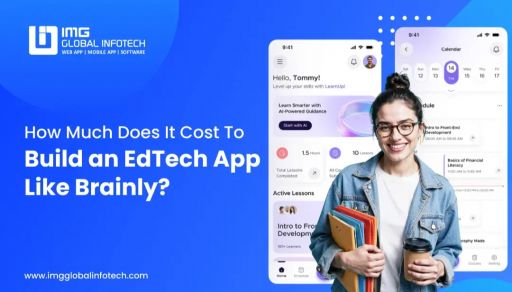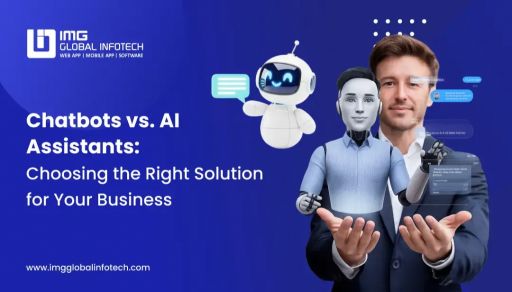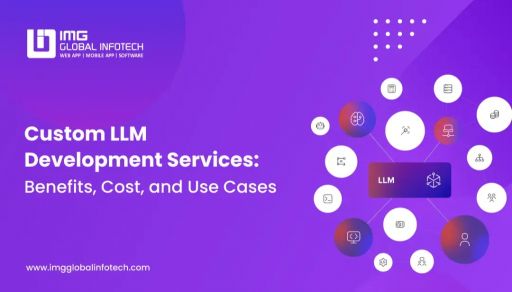AI Vs AGI: Detailed Comparison Guide
Mohit Mittal
Sep 09, 2025
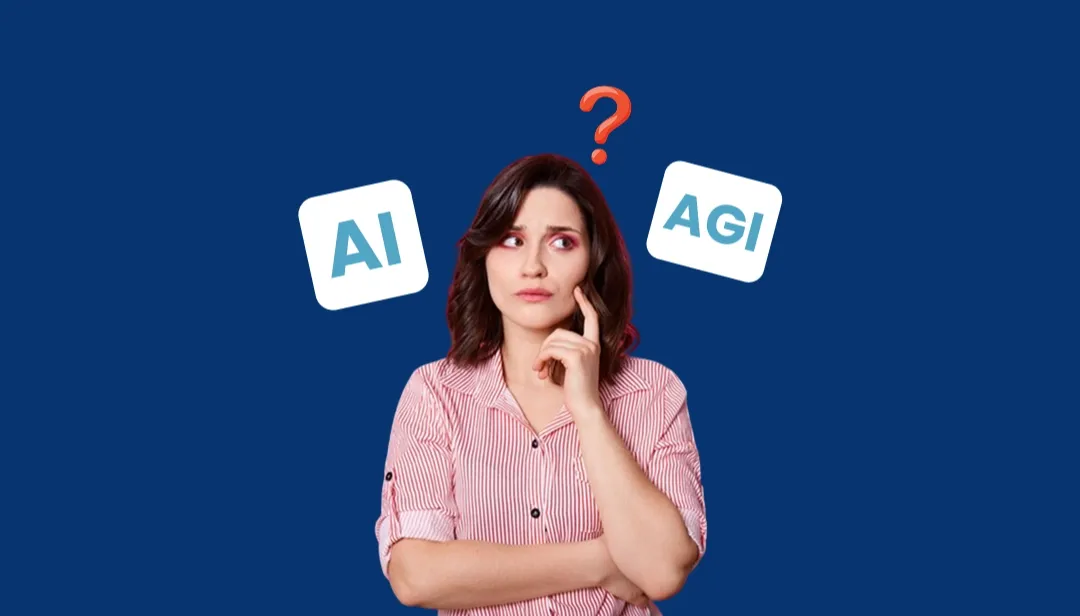
In your life, have you ever wondered about the various forms of AI? Artificial intelligence is now a commonplace resource for everything from weather forecasting to schedule organization. As artificial intelligence (AI) develops, it's critical to comprehend the distinctions between AGI and AI agents because each has a distinct function in our technologically advanced society.
The development of these two forms of AI follows distinct routes. The goal of AGI, sometimes referred to as "strong AI," is to mimic human-like reasoning and problem-solving skills. AI agents are the useful tools we use today, such as chatbots and recommendation systems for ai vs agi, which are made for specialized tasks. In this comprehensive guide, let's examine what makes each special and what they can accomplish.
What is AGI vs AI?
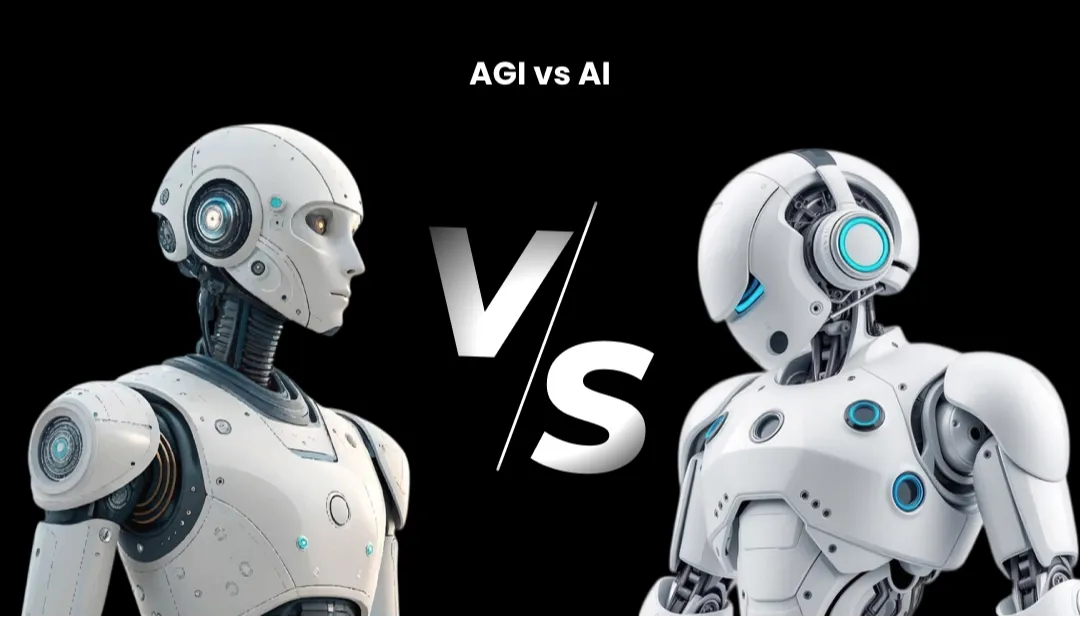
First, check out the meanings of what is agi vs ai and other elements of artificial general intelligence vs artificial intelligence in this guide:
What is AGI (Artificial General Intelligence)?
AGI, or Artificial General Intelligence, is just like a perfect replica of a human because it can think and learn like a human being. This AI technology is different from other AI forms, which you typically need to train to do a single specific job. But AGI has a flexible intelligence that can handle any kind of task beyond any expectations.
What’s the Main Perspective of an AGI System?
AGI, for "artificial general intelligence," often called "strong AI" or "full AI", wants to make machines that understand and reason like people. "Understand" means:
Understanding Deeply: AGI would not only mechanically process information, it could understand meaning and context, whether that is understanding nuance in language, exercising judgment, seeing complex connections, or figuring out what round pegs go in round holes!
Adapt to New Challenges: Like a person, AGI could move from one type of task to a different type or situation and use its past knowledge (habits or skills) to address new tasks.
Learn Independently: In the best case, AGI would be able to learn independently and be able to increase its level of capacity and skill without needing humans' help. AGI wants to be able to develop machines with enough capability to be able to perform human-like tasks independently while enhancing human capabilities.
AGI may generate machines that act broadly like humans; for example, they may assist human beings in responding to global and complex challenges in a way that will best benefit humanity generally across multiple disciplines (e.g., science, healthcare, and education).
Key Characteristics of AGI Systems
AGI (Artificial General Intelligence) is still in development, and researchers are faced with several daunting challenges.
Broad Skills in Multiple Areas
Unlike narrow AI, which is limited to a single task, AGI would need a set of many skills—its future capabilities might include linguistic understanding, problem solving, and emotional and social awareness in the difference between AI and AGI.
Human-Like Thinking and Creativity
AGI would think like a human—it would understand and deal with abstract content, develop thoughts and ideas that are original, and engage with new issues in AI development trends.
Learning-in-Action
Current AI/ML systems engage in knowledge-based decision-making. AGI learns and adapts through direct experience, both in the new/external environment and through conveying a change in mental state, using information and reflection to learn from the experience, just as humans do.
Social and Emotional Intelligence
Because AGI systems would need to work in conjunction with humans, AGI would need to understand emotions, be able to interpret socioemotional cues from the social environment, and make ethical choices in artificial narrow intelligence vs artificial general intelligence.
What is AI (Artificial Intelligence)?
Artificial intelligence is a kind of technology that can help computers and robots to perform tasks or learn about their surroundings just like a human brain, which is related to the specific skill. Let's understand this concept in a different way: some philosophers and storytellers have imagined that AI is just like independent robots or something like that. But in reality, AI is just a concept (or software) that works on specific commands. There is no physical appearance of AI in our lives.
What’s the Main Perspective of an AI System?
AI can be used by people and organizations to automate processes and find solutions to issues that previously required human intelligence in AI development frameworks. Artificial intelligence (AI) is a flexible technology that can be used to solve a wide range of problems, giving it potential benefits for almost every industry. For example, you can use AI for:
-
Product Recommendation Systems
-
Virtual Personal Assistants
-
Robotics in Manufacturing, Healthcare, or Space Exploration
-
Facial Recognition
-
Predictive Analytics
-
Data Analysis
-
Analysis of the translation of Written or Spoken Language
-
Generation of Text, Images, or Video
AI vs AGI: Key Differences
Here is a brief discussion on the major AI vs AGI comparison. Let's take a closer look at that:
Real-World Use Cases of AGI and AI
The term "artificial intelligence" (AI) refers to a type of intelligence that will radically alter and mold the future of business at an even higher level, as in artificial general intelligence vs artificial narrow intelligence. AI has already altered how organizations operate today. It makes sense to first examine how AGI is used in both present and future scenarios in order to comprehend how to deliver, apply, and leverage AI vs. AGI.
AI Applications Use Cases
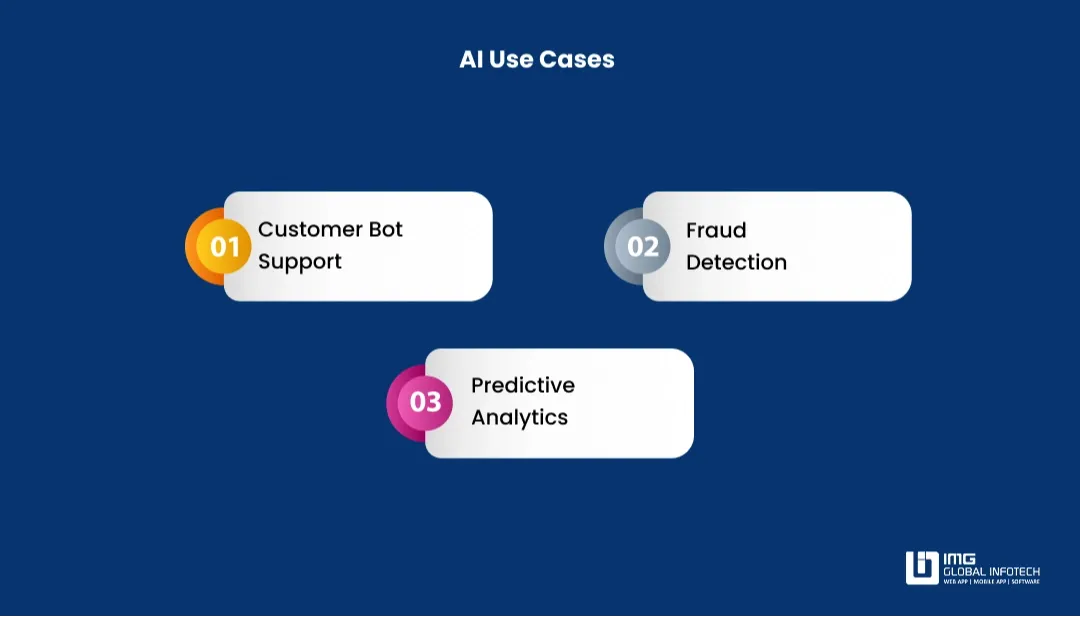
Narrow AI, a specialized type of AI created to accomplish particular tasks, is currently being used by the majority of businesses, from AI vs AGI in artificial intelligence. These systems can accurately solve problems using predictive techniques, but they lack self-awareness and a true understanding of the world beyond their boundaries. Narrow AI is currently used in various industries in the following ways:
1. Customer Bot Support
Chatbots driven by artificial intelligence are currently the most popular customer service software options in AI vs AGI key differences. These can handle requests, route complex queries that require human review and response, and automatically reply to frequently asked questions.
Customer support AI chatbot works any time and reduce response time and cost to a business. Natural Language Processing (NLP) is now in a good place in providing an understanding of a customer’s intent and providing a personalized response that adds real value to the user experience.
2. Fraud Detection
Machine learning algorithms are used by banks and fintech companies to instantly detect fraudulent transactions. To spot irregularities, these AI systems take into account past transaction data, spending trends, and user behavior data, which is also seen in Conversational vs generative AI.
Although AI systems cannot "understand" fraud the way humans can, they can identify suspicious activity based on records, which has significantly decreased financial losses.
3. Predictive Analytics
Companies are using AI technology for forecasting trends, demand planning, and maintaining stocks. AI can process massive sets of data and is thus more effective at forecasting human activity, streamlining supply lines, and generating a company strategy.
Predictive models are used by marketing teams in an effort to be more efficient in targeting a campaign or message. This makes ROI and customer retention more effective by optimizing the campaign as a whole, rather than targeting specifically.
AGI Applications Use Cases
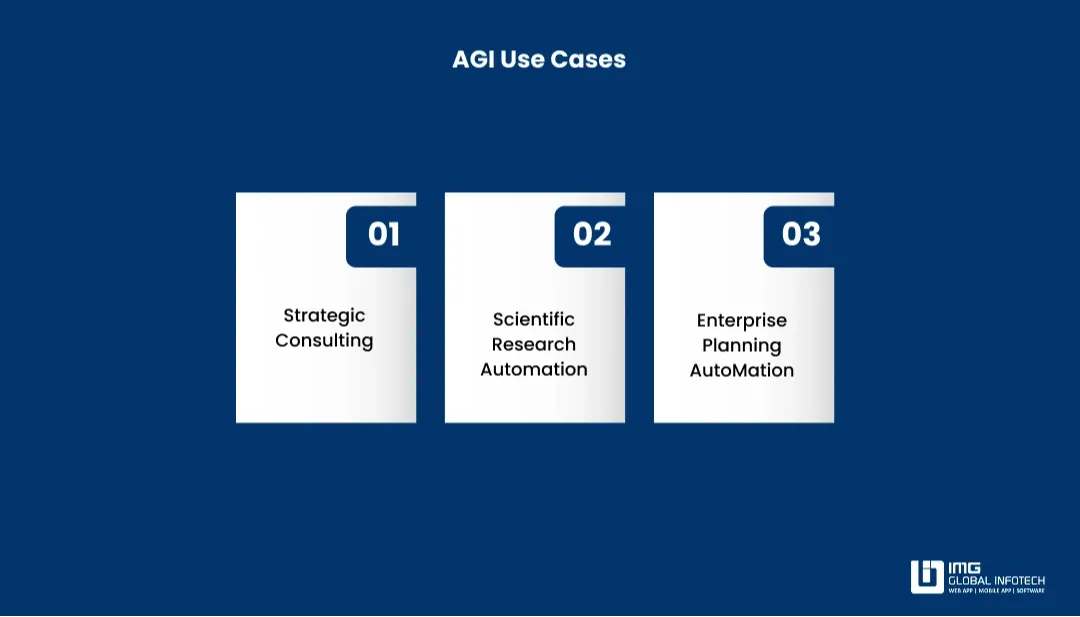
AGI (Artificial General Intelligence) differs from the prevailing-day AI in its capability of emulating human-like intellectual functions. Today's AI systems are 'weak' or 'narrow' in the sense that they are capable only of performing and answering knowledge-based tasks based on experience, as a human would. When fully developed, AGI shall redefine how firms actually function.
1. Strategic Consulting
Imagine an AGI that could comprehend entire marketscapes, predict disruption, and create prescriptions for strategic pivots through comprehension of economics, psychology, geopolitics, and technology.
AGI would replace or supplement boutique consulting firms not with data analysis, but by reasoning through uncertain circumstances and offering practical insights—being able to reason through problematic situations.
2. Scientific Research Automation
The AGI would focus and accelerate R&D more than ever before. In pharma, e.g., AGI can hypothesize, simulate, and experiment with new formulations of drugs with minimal human interaction. AGI could read and interpret research papers, generate new hypotheses, and even script experiments.
AGI would compress time and money in the discovery process by orders of magnitude and launch innovation by exponential increments.
3. Enterprise Planning AutoMation
Whereas ERP segments could be operated by AI, AGI itself could potentially operate entire businesses on its own. From finance, through human resources, through supply and logistics, AGI would be able to process external and internal data, make the best decisions, and potentially revamp an entire company infrastructure based on real-time market conditions. This is a form of integrated, dynamic planning that current AI cannot accomplish.
AI vs AGI: Benefits for Businesses
Understanding the concept of what the difference between AI and AGI is is crucial for leaders to maintain a competitive edge for businesses. Currently AI technologies are providing innovative ways that can optimize their business approach to enhance operation speed and eliminate some part of daily productivity. Utilizing AI technologies can automate the routine tasks so the human workforce can invest their time in complex tasks.
AGI, in contrast, can completely alter the idea of “work” and decision-making. AGI could play the role of a full-time CEO, strategy officer, researcher, and innovator, all at the same time. Since AGI is capable of learning to mimic human intelligence and to surpass human intelligence, AGI would allow organizations to confront organizational problems with creativity, speed, and scale that have never been seen before.
Wrapping Up
Through this blog, we have explored AI vs AGI a full detailed comparison between these two AI technologies. We have also discussed various elements like meanings, importance, differences, use cases, and benefits of AI and AGI for enhancing business growth at the top level while maintaining a strong visibility in the market.
As a leading AI development company, we are always here to provide you with complete assistance regarding AI frameworks and technologies in your business. Well, IMG Global Infotech is always available here to build custom web and mobile apps that can cater to all your business requirements and needs as well.
Mohit Mittal is the co-founder of a leading IT company with over a decade of experience in driving digital transformation and innovative tech solutions. With a strong background in software development, Mobile app development, E-commerce, business strategy, and team leadership, Mohit Mittal is passionate about helping businesses scale through technology. When not solving complex tech challenges, he enjoys sharing insights on emerging trends, entrepreneurship, and the future of IT.



